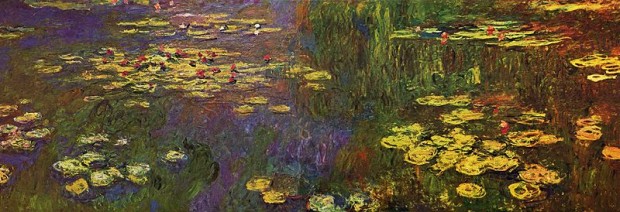There is a pond with one lily pad. The number of lily pads doubles every day. The pond will fill up by the 30th day. On what day is the pond half full? The 29th day. That�s the whole point. Okay, let�s take the optimists� argument. Let�s assume that the lily pads are getting really worried. They point out, Hey guys, we�ve got one short period left and then we�re all going to be fighting over the same nutrients and choking each other out. Not to worry: some of the lily pads are technological geniuses. They�ll figure out a way to get around this. They announce to every lily pad�s joy that they have found an opening now to another empty pond of the same size, so you don�t have to change your patterns and way of life, fellow lily pads, we can go on. Okay. When does that new pond fill up? On the 31st day. That�s the problem with humanity today, and I don�t care if we spend a huge amount of money to shoot people off into space toward Mars. I don�t care if we figure out a way to do fusion or find some other energy source. We can�t go on like this.
�Ecologist E. O. Wilson in an interview with Elizabeth Kolbert at the National Resource Defense Council’s site, One Earth. It’s a rich conversation about the tenor and textures of evolution. WIlson is at his best in these two paragraphs, a straightforward account of the evolution of the ants (Wilson’s specialty) that is also a parable of natural history.
Ants and termites today make up very roughly three-quarters of the total insect biomass. A lot of people might think that�s amazing because there are only some 15,000 ant species, whereas there are over 900,000 known species of insects. In terms of biomass, they own the world. But in terms of the damage they�ve done? Have the ants taken over the world? No. Why? Because � and this tells us the significance of the human story � ants came into existence in the Mesozoic, more than 100 million years ago. We have fossils now and we know what they looked like and how they appeared. In the beginning they were rather scarce. It was only after tens of millions of years of evolution, occasionally rushing out and stinging the feet of dinosaurs who were clumsy enough to step on their nests, that they diversified a good deal and probably had advanced societies. But they still were not the most abundant insects. That didn�t occur until the beginning of the age of mammals.
We know that by 15 million years ago ants had taken over. Their habitats had tens of millions of years to evolve and accommodate the ants as they became more and more prevalent. There are vast numbers of insects that make their living off of ants, and the ants make their living off of other insects, particularly sap-sucking insects, with which they share nutrients. Many, many species of plants have special structures that they developed so that ants could live in them, and the ants in turn could offer them protection. After this long period of evolution, ants eased into their preeminent position, which they have held for 15 million years. Not bad.
What would the world look like if humans had taken 85 million years to evolve? In lily-pond terms, the evolution of the ants seems to acknowledge that the pond is never half-empty or half-full�it’s always full to the brim. The challenge is to leave room for water. [via Peter Kobel]
 Gearfuse Technology, Science, Culture & More
Gearfuse Technology, Science, Culture & More



